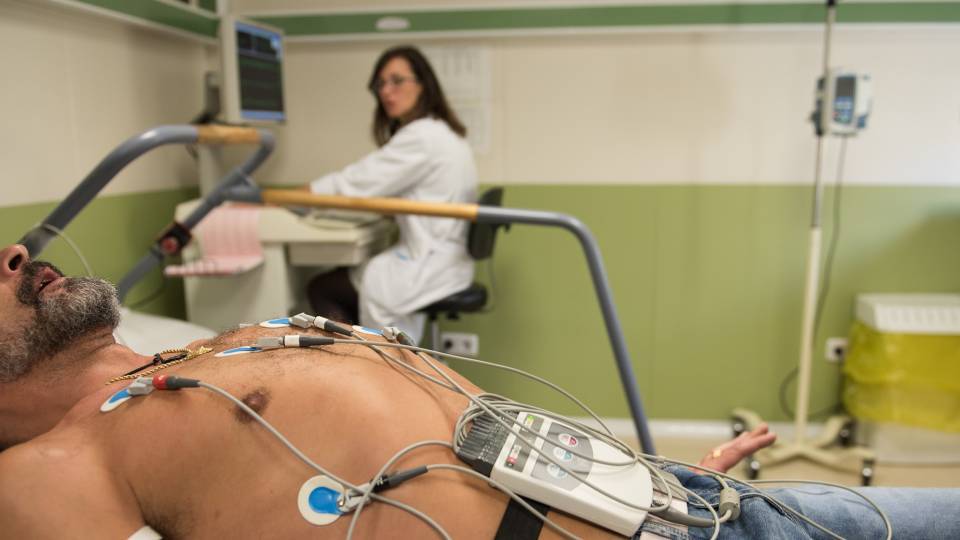During the months of the pandemic, the incidence of myocardial infarction has changed. At the local, national and international level, there has been a reduction of up to 50% of patients hospitalised by a heart attack, as well as an increase in mortality compared to the same period last year. It is suspected that the cause of this decrease is patients’ fear of catching COVID if they go to hospital. Because of this fear, a delay in seeking consultation has been observed in patients with infarction, who are arriving at hospital with a worse prognosis, leading to an increase in mortality. Mechanical complications in particular have also increased, including heart rupture, which tends to be uncommon. Because of all this, it is important to highlight that despite the current situation, hospital care for heart attacks continues to operate at the same level. The risks related to this disease surpass the risk of any infection, meaning it is better to go to the Emergency Room as soon as possible to receive the correct diagnosis and treatment for heart disease, which can be fatal if it is not treated quickly and properly.
Another aspect related to COVID-19 and cardiovascular disease is the use of drugs such as ACE-inhibitors, which are often prescribed in patients with hypertension and heart failure. It is known that SARS-CoV2 uses the receptor ACE2 to enter the cells and cause the infection. This receptor is very similar to the ACE enzyme, a key enzyme in blood pressure regulation. ACE-inhibitors act on this enzyme, causing an increase in the expression of the ACE2receptor. For this reason, some researchers have formulated the hypothesis that the use of these drugs can increase the virus’ access to cells, predisposing patients with cardiovascular problems to COVID infection, or a more severe case of the illness. Nevertheless, a study published in the journal Lancet has disproved this hypothesis. No difference was found in terms of hospitalisation or additional risks in patients who were taking this kind of drug and were infected by COVID-19, compared to other patients who were not taking these drugs. As such, there is no current evidence to justify the suspension of these drugs as a preventative measure in patients with cardiovascular disease who are at risk of COVID-19. Furthermore, suspending these drugs may lead to poor control of blood pressure, which would produce a greater risk of cardiovascular problems.
Many patients with cardiovascular disease have demonstrated concern about whether they would suffer a more serious infection if they caught COVID due to their condition. This is something that has already been observed with flu, in which acute respiratory illnesses produce greater activation of coagulation, inflammatory effects and vascular dysfunction in patients with cardiovascular problems. So far, no study has been able to show that this is the case with COVID. Even so, it is wise to be prudent, as this is a new disease and we still do not know to what degree it affects different people based on whether they have different pathologies, ages, physical conditions or genetic characteristics.
As such, it is important for patients who are at high cardiovascular risk due to different risk factors such as old age, diabetes or obesity, or patients who have already been diagnosed with cardiovascular disease, to strictly comply with the protection measures recommended by the health authorities in order to minimise the risk of contagion.
Author: Dr Salvatore Brugaletta, cardiologist at the Cardiovascular Institute.




